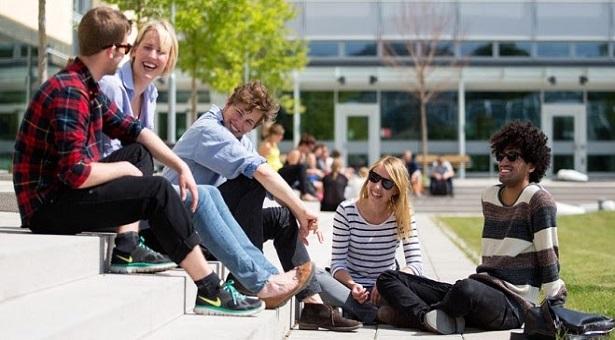Higher Education & Scholarship in Sweden

Sweden is the largest country in Northern Europe, the third largest in the European Union and the fifth largest in Europe by region. The country has a population of about ten million and a per capita GDP of 45,000 euros.
According to the 2020 World Rule of Index, Democracy Index 2019 and Corruption Perception Index 2019, Sweden is one of the top five countries in the world. Sweden is a developed, modern and technology dependent state for living and higher education.
Sweden spends about 3.4% of its GDP on research and innovation; Which is the highest in the world. Sweden has 14 government universities, 16 university colleges and several independent and autonomous institutions of higher learning. The country’s oldest universities include the 543-year-old Uppsala University and the Lund University, founded 354 years ago.
Although English is the main foreign language of the country, Swedish is the official language of Sweden. Sweden is second only to the Netherlands in terms of the use of English as a foreign language. Most of the subjects at the undergraduate level are taught in English. However, this picture is a bit different in the case of jobs. If one has a long-term career ambition or a specific professional goal in Sweden after graduation, it would be of great benefit to know the Swedish language.
Swedish universities admit students mainly in the autumn and spring semesters. However, non-European students are usually admitted in the autumn semester as the application process, interview, visa (Swedish residence permit) and various steps related to admission take ample time. The admission process for the first round of Autumn 2021 semester has started from 16 October 2020. The deadline for online application is 15 January 2021. The application fee is 900 Swedish kronor and the deadline for submitting and uploading the required documents is February 1, 2021.
At the postgraduate level an applicant can apply for a maximum of four subjects. It could be at one or more universities. Applicants have to be sorted on a priority basis, which is very important for admission. If the applicant is selected for the first item on his / her preferred list, the remaining items are automatically canceled. Details of each subject are given on the university’s own website, which is updated annually.
In addition to fulfilling a number of thematic requirements for admission (bachelor’s degree and, if applicable, motivation letter / statement of purpose, reference letters, CV, etc.), English language qualifications, such as a minimum IELTS or TOEFL score.
The Swedish Admission Site mentions some different admissions conditions by country, each of which should be considered seriously by an applicant. In case of Bangladesh, the applicant has to make a compulsory courier in Sweden by attesting the transcript of his / her graduation from the university. In addition to the bachelor’s degree certificate, English language proficiency certificate and scanned copy of the passport, the required admission documents and other necessary documents have to be uploaded in the profile created on the admission site.
- Best Spices of Noodles Made at Home
- Easily make homemade desserts
- Best items of fried chicken
- 7 Foods That Give You Younger Look
- Brazil reached top in point table, then Argentina
- Delicious cauliflower korma Recipe
- Foods that can never be eaten raw
- How to make, cook, and store sidal, Sidal Recipe
- 6-year-old Arham is the youngest programmer in the world
- Apps to get jobs abroad are coming to Bangladesh
In the past, Sweden had a free education system for all, but since the autumn semester of 2011, tuition has been imposed on non-European students. Tuition fees vary by subject and university. A student has to bear around eighteen to thirty lakh rupees for a two-year postgraduate program. However, there are various scholarship arrangements for higher education in Sweden. Notable in this regard is the Swedish Global Professional Scholarship, which is widely known around the world as the SI Scholarship. It is a Swedish government scholarship run primarily by the Swedish Institute. The main objective of this scholarship program is to develop future leaders to contribute to the global goals of the United Nations (Agenda 2030).
This year students from forty two underdeveloped / developing countries of the world including Bangladesh will be able to apply for SI Scholarship. The application process will run from 6-17 February 2021. The results will be announced on 26 April 2021. As it is very competitive, only 4-6% of the applicants are given this scholarship. Although there is no quota in the country, usually 15-20 people get SI scholarship from Bangladesh every year.
In addition to SI scholarships, each Swedish university offers separate scholarships to non-European students. These scholarships of the universities basically bear 25-100% tuition fees. In addition, the Student Associations and Student Nations of each university provide various scholarships and financial grants. If you get a university scholarship, you don’t have to pay huge tuition fees, which is a big achievement. Since there is no pressure on tuition fees, it is possible to carry a few months’ money for accommodation at the beginning and then continue the monthly expenses by getting a part-time job. However, the Swedish language is an important part of the work.
Follow the web links below to find out more about Sweden’s higher education, scholarships, visas and other practical information.
1) Admission (https://www.universityadmissions.se/intl/start)
2) SI Scholarships (https://si.se/en/apply/scholarships/)
3) Visa / Residence Permit (https://www.migrationsverket.se/)

